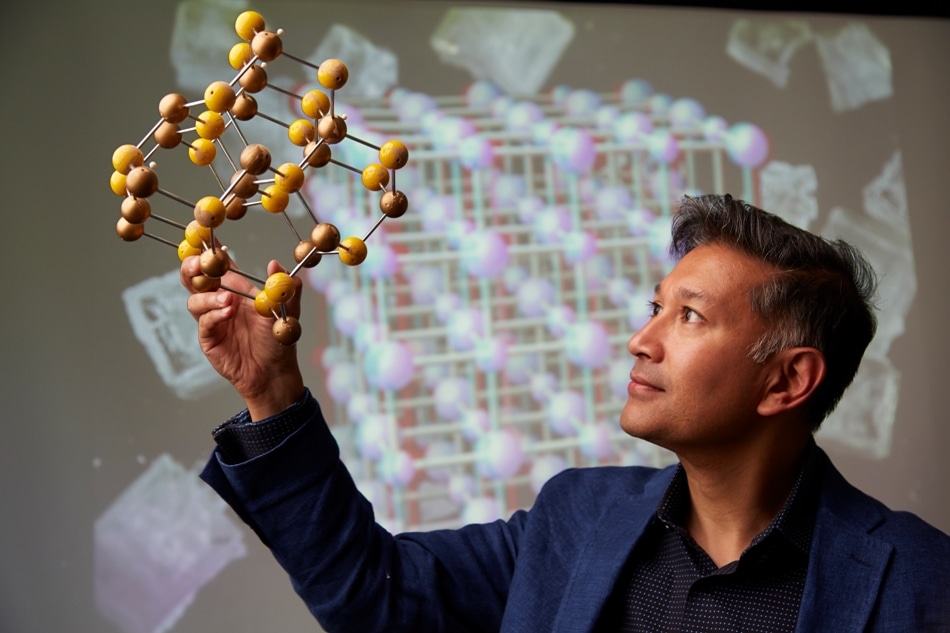Jan 19 2017
 Professor Saiful Islam. CREDIT: The Royal Society.
Professor Saiful Islam. CREDIT: The Royal Society.
Researchers have now discovered the reason behind improvement in battery performance when charged metal atoms are added to tunnel structures within the batteries, which could help in developing faster recharging lithium batteries.
A ‘portable revolution’ has been powered by rechargeable lithium batteries utilized in laptops, mobile phones, and tablet computers. Additionally, research is on to develop new generations of lithium batteries for use in electric vehicles and for storing energy tapped from solar power and wind.
Currently, research teams headed by Professor Saiful Islam from the Department of Chemistry, University of Bath, and Professor Reza Shahbazian-Yassar from the University of Illinois at Chicago, have gained significant knowledge that could further enhance lithium battery performance. Their research has been reported in Nature Communications, a leading journal.
Faster storage of electrical energy compared to current electrodes is highly significant for future applications in electric vehicles and portable electronics.
In the recent past, although it was found that large metal ions such as potassium had the ability enhance charge storage in batteries, the reason behind this could not be elucidated.
A dynamic combination of computer simulations and structural experiments was employed by the research teams to elucidate, for the first time, the reason behind the highly advantageous effect on the battery performance when charged potassium was added into tunnel-like structures in low-cost manganese oxide.
The research teams found out that the addition of positively charged ions rapidly increased the speed at which lithium moves within the tunnel structures, which is highly critical in enhancing the charging of batteries.
Understanding these processes is important for the future design and development of battery materials, and could lead to faster charging batteries that will benefit consumers and industry. Developing new materials holds the key to lighter, cheaper and safer batteries, including for electric vehicles which will help cut carbon emissions.
Professor Saiful Islam
A £3.9 million Supergen grant from the Engineering and Physical Sciences Research Council (EPSRC) funded the research.
The Institute for Sustainable Energy and the Environment and the Centre for Sustainable Chemical Technologies at the University of Bath make it a major centre for sustainable energy and chemical research.